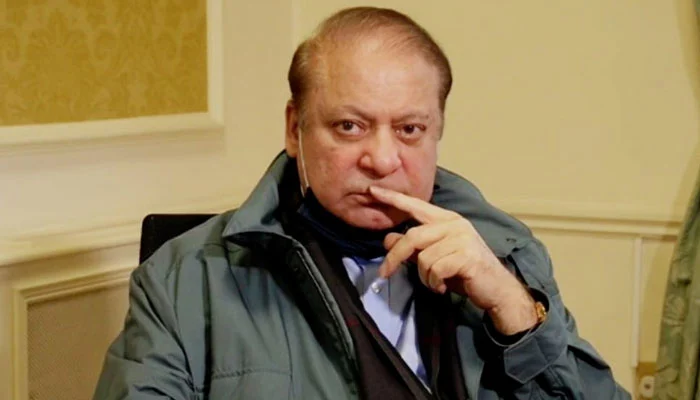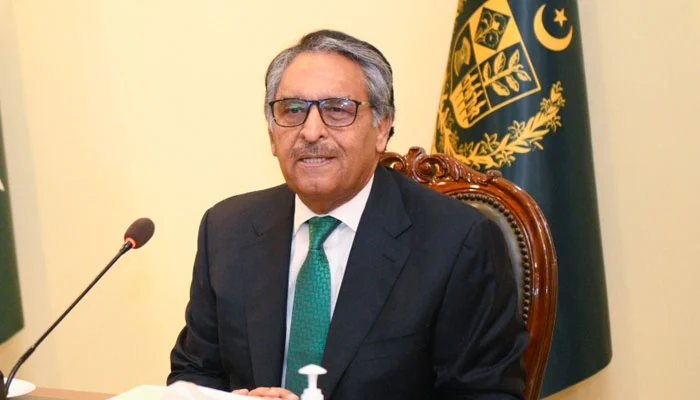The District and Sessions Court of Islamabad has approved the extension of the physical remand for Tehreek-e-Insaf (PTI) leader Rauf Hasan for an additional three days. This decision comes after Hasan and other accused individuals were produced before the court following the completion of their initial two-day physical remand.
The Federal Investigation Agency (FIA) investigation officer requested further physical remand, citing ongoing investigations that require more time. The FIA prosecutor informed the court that crucial aspects of the investigation, including the recovery of social media accounts and logging into email accounts, have not yet been completed. The prosecutor emphasized the need to scrutinize these accounts thoroughly, especially given the allegations that individuals are operating WhatsApp groups for monetary gain, with involvement from people abroad.
The investigation officer highlighted that fake social media accounts were discovered on the accused’s mobile phone. It was further revealed that Rauf Hasan heads the social media team, and he is responsible for directing the team’s activities. This information is pivotal as the investigation seeks to uncover the extent of Hasan’s involvement and any potential connections with anti-national elements.
The FIA prosecutor elaborated on the complexity of the case, stating, “There is a campaign against the judiciary and administration. We have only one social media technical expert, and more time is needed to check social media accounts.” This underscores the technical challenges faced by the investigation team in analyzing digital evidence and tracing the origins and impacts of the alleged campaigns.
In light of these ongoing inquiries, the court granted the FIA’s request, extending the physical remand of Rauf Hasan and nine co-accused for another three days. This extension is deemed necessary to allow investigators to delve deeper into the digital activities and affiliations of the accused.
The context of the arrest and subsequent remand extension sheds light on a broader investigation into alleged anti-state propaganda and misuse of social media platforms. Preliminary investigations, as stated by Atta Tarr, have revealed that Rauf Hasan had contacts with anti-national elements, further complicating the legal and security dimensions of the case.
In previous reports, the Ministry of Home Affairs noted that Rauf Hasan and Ahmad Waqas were arrested in connection with PTI’s alleged involvement in anti-state propaganda. These arrests have sparked significant attention, highlighting concerns about the use of social media for political and potentially subversive activities.
Islamabad Police confirmed the arrest of Rauf Hasan from PTI’s Islamabad Secretariat four days ago. This detention is part of a broader effort by law enforcement agencies to clamp down on activities perceived as threats to national security and public order. The investigation into Hasan’s activities and those of his associates is crucial for understanding the full scope of their operations and any implications for national stability.
The ongoing investigation has raised several critical issues, particularly regarding the intersection of politics, social media, and national security. The case of Rauf Hasan exemplifies the challenges faced by authorities in regulating and monitoring digital platforms, which can be used for both legitimate political discourse and harmful propaganda.
Furthermore, this case highlights the importance of having adequate technical expertise and resources within law enforcement agencies to effectively tackle cyber-related investigations. The reliance on a single social media technical expert, as mentioned by the FIA prosecutor, points to a potential area for capacity building within the agency to better handle the increasing complexity of digital investigations.
As the investigation proceeds, the outcomes of these inquiries will likely have significant implications for how political activities and digital communications are managed and regulated in Pakistan. The extended remand period is a crucial window for investigators to gather necessary evidence and build a comprehensive understanding of the alleged activities of Rauf Hasan and his associates.
The extension of the physical remand of PTI leader Rauf Hasan underscores the ongoing and intricate investigation into alleged anti-state activities conducted through social media platforms. The court’s decision reflects the need for thorough scrutiny of digital evidence and the importance of understanding the broader implications of such activities on national security. The case continues to unfold, drawing attention to the critical balance between political freedoms and the protection of state interests in the digital age.



